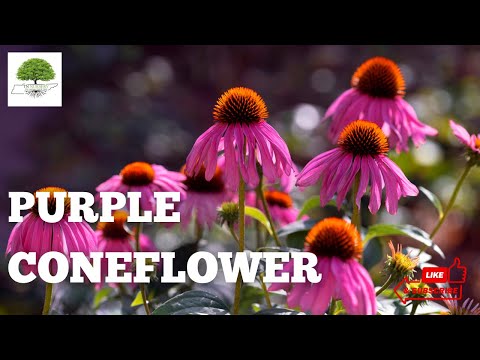Coneflower Plant - A Long-Blooming Pollinator Favorite
Coneflower plants are a pollinator magnet perennial. They also have two bloom seasons, making them highly popular in native plant gardens. Butterflies, bees, and even hummingbirds, plus a host of other pollinators, gravitate to this plant, and birds also love the seed heads after the blooms die back in the fall.
Every perennial plant that we sell at the nursery is mature and in bloom. This means a lot for the homeowner who does not want to wait one or two seasons to see blooms. Blooms are bold and pinkish-purple in both Spring and Fall seasons, making this a very striking addition to any native plant flower or cottage garden.

Drought-Tolerant Blooms That Feed Wildlife All Season
These plants are drought-tolerant and have a super long blooming cycle, lasting upto a month at a time when they bloom. Goldfinches, especially, love the seed heads in late Fall when all the blooms die back from the plant, offering another great reason to buy a plant with multiple uses.
Echinacea's Herbal Benefits and Hardy Nature
It also has some herbal uses, such as serving as a natural immune-boosting remedy, among others, and is most well-known in the herbal world as the echinacea plant. It's also one of the perennials that can thrive in both colder and warmer climates, being hardy in zones 3 through 9. The plant will also reseed itself and grow new plants annually, that is if the birds don't choose them first.
Buy 1 Get 1 Free Sale on Conflower Plants at TN Nursery
Why Coneflowers Belong in Every Pollinator Garden
Coneflowers are among the most reliable native perennials for gardeners seeking color, resilience, and wildlife activity. Their long blooming window, bold color, and tough nature make them ideal for cottage gardens, pollinator habitats, wildflower borders, and low-maintenance beds. They attract bees, butterflies, hummingbirds, and seed-loving birds, bringing beauty and ecological value from early summer until late fall.
Growing Conditions and Planting Tips for Coneflowers
They thrive in full sun and well-drained soil. Once established, they require little care and rarely need extra watering, except during prolonged droughts. Deadheading can extend blooming, but many gardeners leave seed heads intact for wildlife. Space plants generously, as mature clumps expand each year, providing a fuller display of color.
Why TN Nursery Customers Love Our Coneflower Plants
TN Nursery offers mature, ready-to-bloom plants that thrive in Zones 3–9. Each plant arrives dormant or freshly dug, depending on the season, for fast establishment. Gardeners value the dependable blooms, rich color, and ecological benefits of true native pollinator plants. Our current Buy 1 Get 1 Free sale makes this the perfect time to stock up and fill your garden with lasting color.
Frequently Asked Questions About Coneflower Plants
How much sunlight do coneflowers need?
These perennials bloom best in full sun but can tolerate light shade. Expect stronger stems and more flowers with 6–8 hours of sunlight daily.
Are coneflowers drought-tolerant?
Yes. Once established, they are highly drought-tolerant and require minimal supplemental watering, making them excellent for low-maintenance landscapes.
Do coneflowers attract wildlife?
Absolutely. Bees, butterflies, and hummingbirds visit throughout the blooming season, and birds—especially goldfinches—eat the seed heads in fall and winter.
Will coneflowers reseed each year?
Yes. They naturally reseed, creating new plants annually, unless birds consume all the seeds. Many gardeners leave seed heads as winter food for wildlife.
What USDA zones are coneflowers hardy in?
Coneflowers thrive in Zones 3–9, making them one of the most versatile and cold-hardy perennials available.

Exposure
Full Sun and Well Drained Soil
Height at Maturity
Over 12"
Usage
Pollinator Plant
Shipped As
Bare-root
Ships
USPS
Planting Zones
4-9




